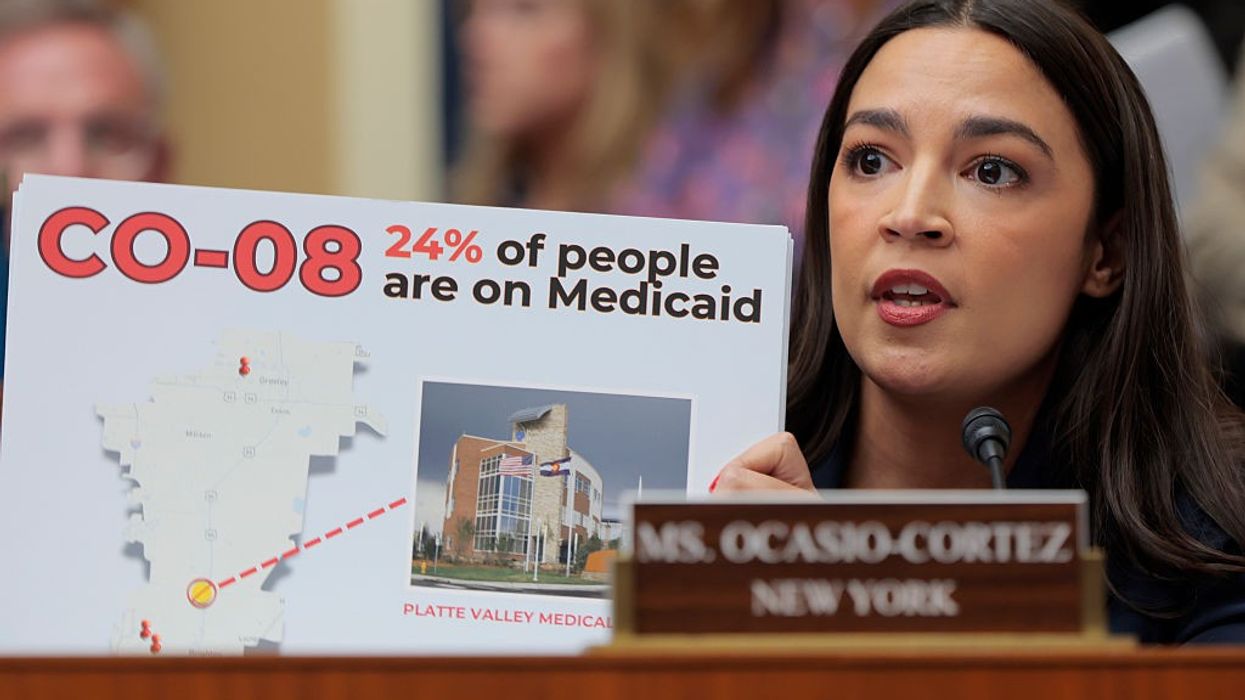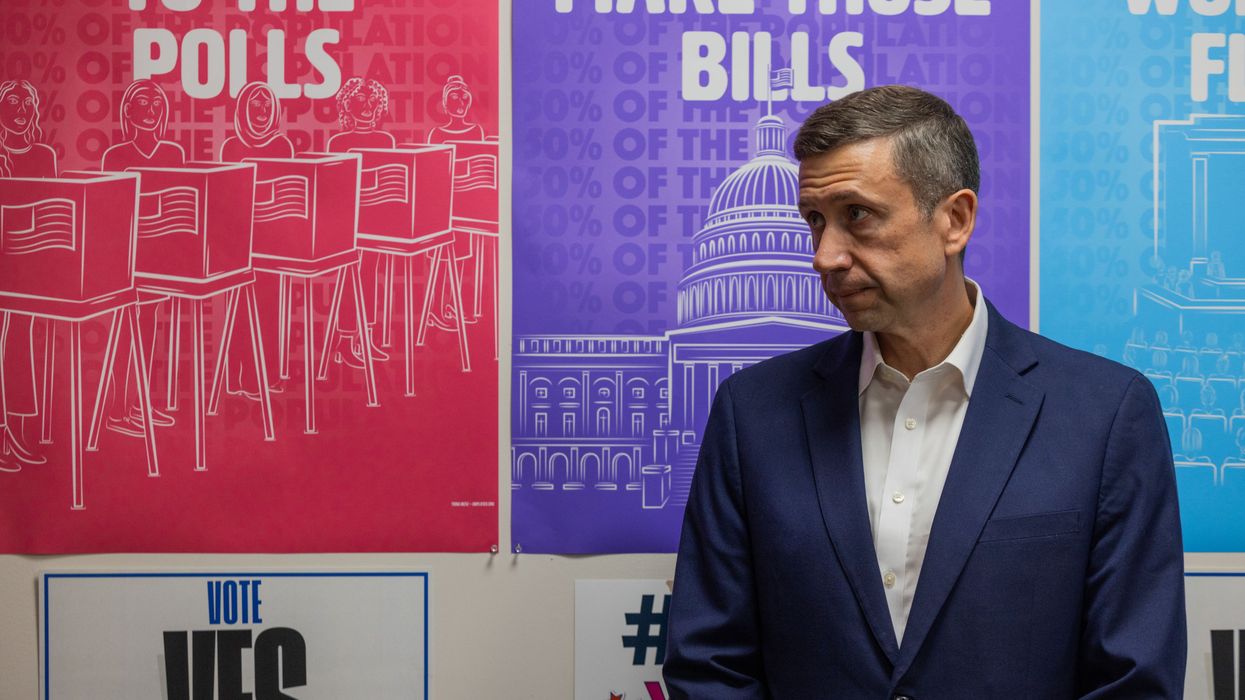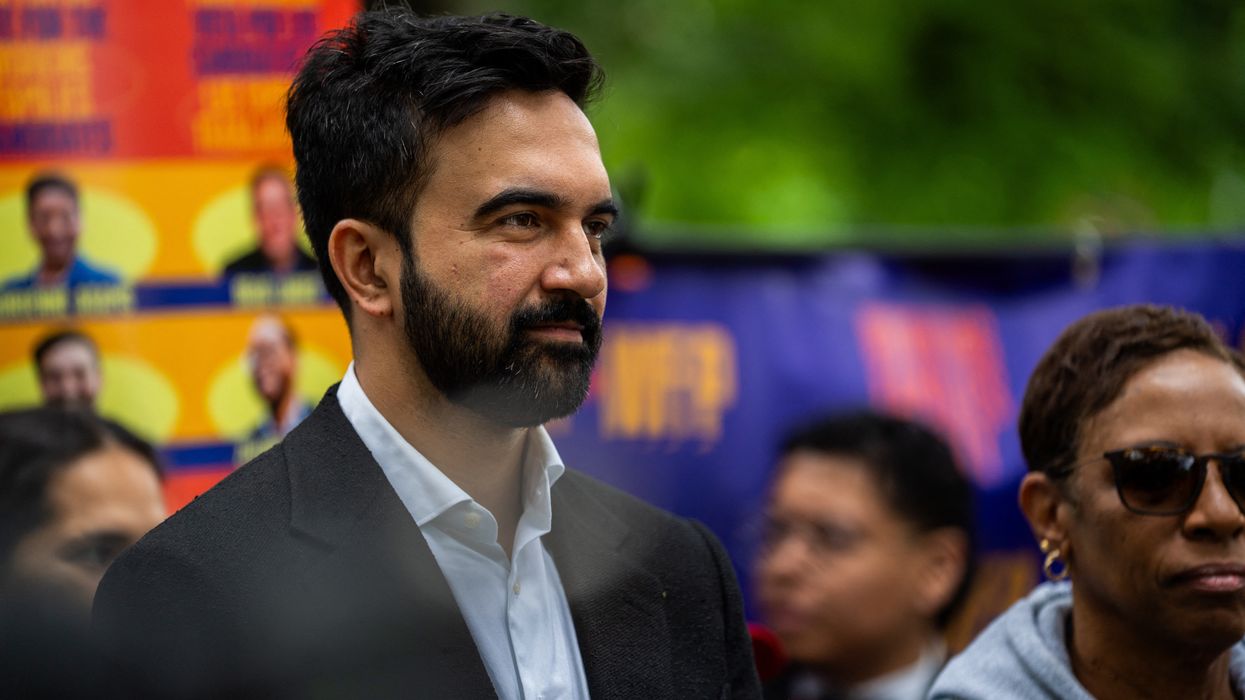Axios reported Monday that Democratic National Committee (DNC) Chair Ken Martin has recently met with advocates seeking to implement RCV in the party's 2028 presidential primary.
Among them were reportedly Rep. Jamie Raskin (D-Md.), pollster Celinda Lake, organizers with the nonprofit FairVote Action, and several other figures in the Democratic Party.
Raskin is a long-time advocate for ranked-choice voting. In 2019, leading up to what would be a chaotic and crowded 2020 primary, he wrote in Common Dreams, along with political organizers Adam Eichen and Rob Richie, that:
RCV is the best way to allow greater voter choice without wasted votes and unrepresentative winners...
It will help any party gain stronger nominees and provide more clarity about what voters really want going into conventions. Because voters’ backup choices matter, candidates with RCV tend to run more positive campaigns, seek common ground, and respect their opponents’ supporters.
Notably, that scenario is exactly what played out in New York City’s Democratic primary. City Comptroller Brad Lander, another progressive mayoral candidate, was able to encourage his voters to rank the more popular Mamdani without fear of splitting the votes and helping their centrist opponents.
At a time when Democratic voters have historically low levels of trust in their party's leaders, Lake told Axios that "[RCV] gives a better chance to new faces, outsider candidates, people with grassroots movements, people who run positive campaigns, people who have something new to offer. It really meets the moment."
New York City is the highest-profile practitioner of RCV, which it adopted in 2019 for party primaries. But others include Maine and Alaska, as well as cities like San Francisco and Minneapolis.
Republicans have aggressively sought to outlaw ranked-choice voting in states where they have legislative control. In 2024, Louisiana, Alabama, Mississippi, Oklahoma, and Kentucky all passed bills to outlaw RCV—bans that may hinder its implementation as a new nationwide system, even in Democratic primaries.
Meanwhile, in Colorado, Nevada, Idaho, and Oregon, voters rejected RCV during last year's elections following industry-backed pushes against it.
In a letter to the editor of the Anchorage Daily News on Sunday, a reader pointed out that President Donald Trump's calls for any Indiana lawmakers who vote against redistricting the state in the GOP's favor to be "PRIMARIED" was evidence of why RCV "is important for protecting our democratic process."
“In ranked-choice voting, no one person, nor small group of people, can keep a candidate in their party off the final ballot because they don’t agree with a particular partisan attitude,” he wrote.
In order for the DNC to implement ranked-choice voting, it would need support from its Rules and Bylaws Committee, whose members are appointed by Martin. It would also need majority support from the DNC's roughly 450 members, which include state party leaders and others elected by states. Axios reported that enthusiasm among members is mixed.
Progressive commentators have expressed excitement at the idea: "This would be a fantastic pro-democracy stance," wrote the left-wing Breaking Points co-host Krystal Ball on social media.
But others doubted that party powerbrokers, who worked behind the scenes to stop the insurgent campaigns of Sen. Bernie Sanders (I-Vt.) in 2016 and 2020, would ever implement a reform that would cede so much power to outsider candidates.
“This is a great idea,” said Sanders’ 2020 press secretary, Briahna Joy Gray. “They won’t do it.”




